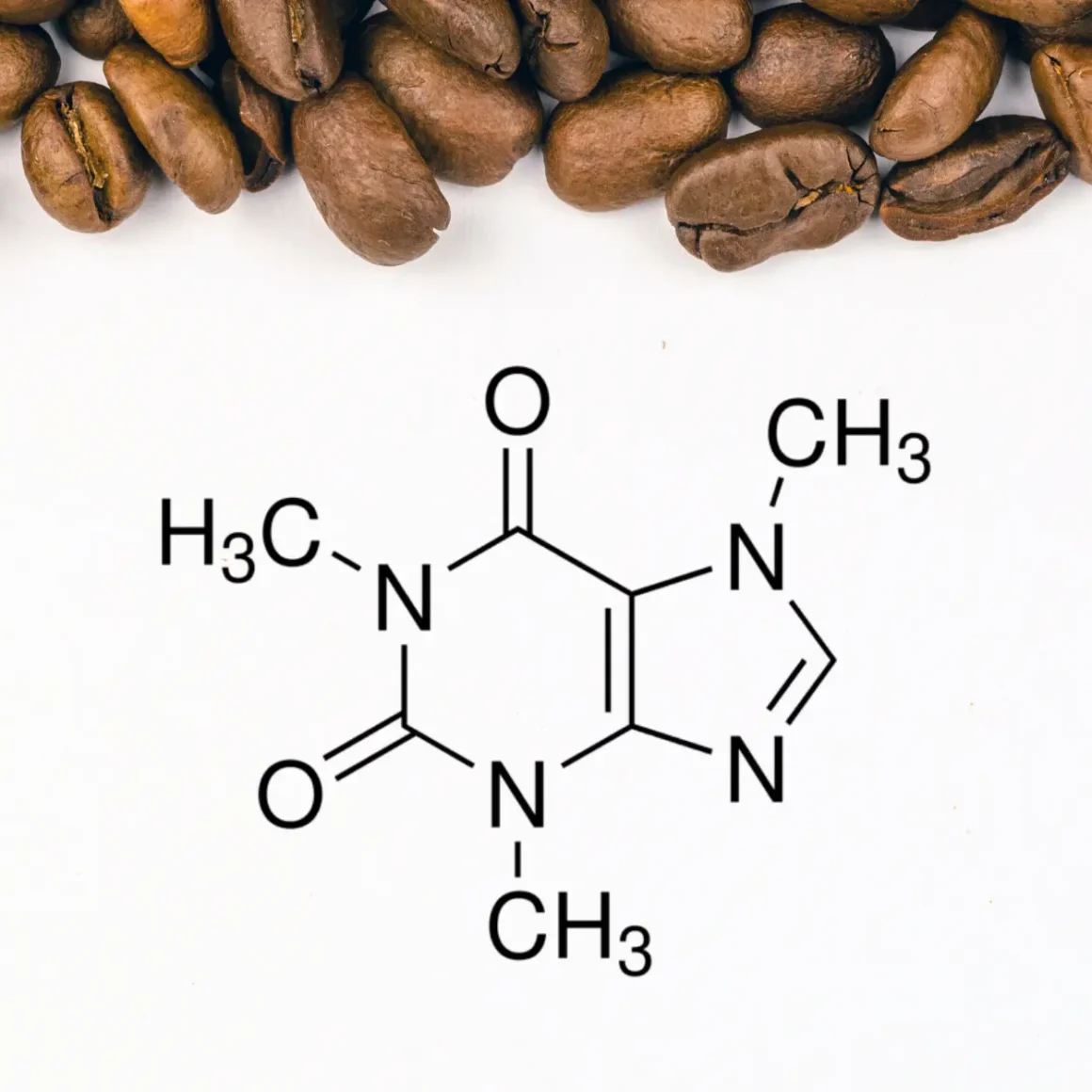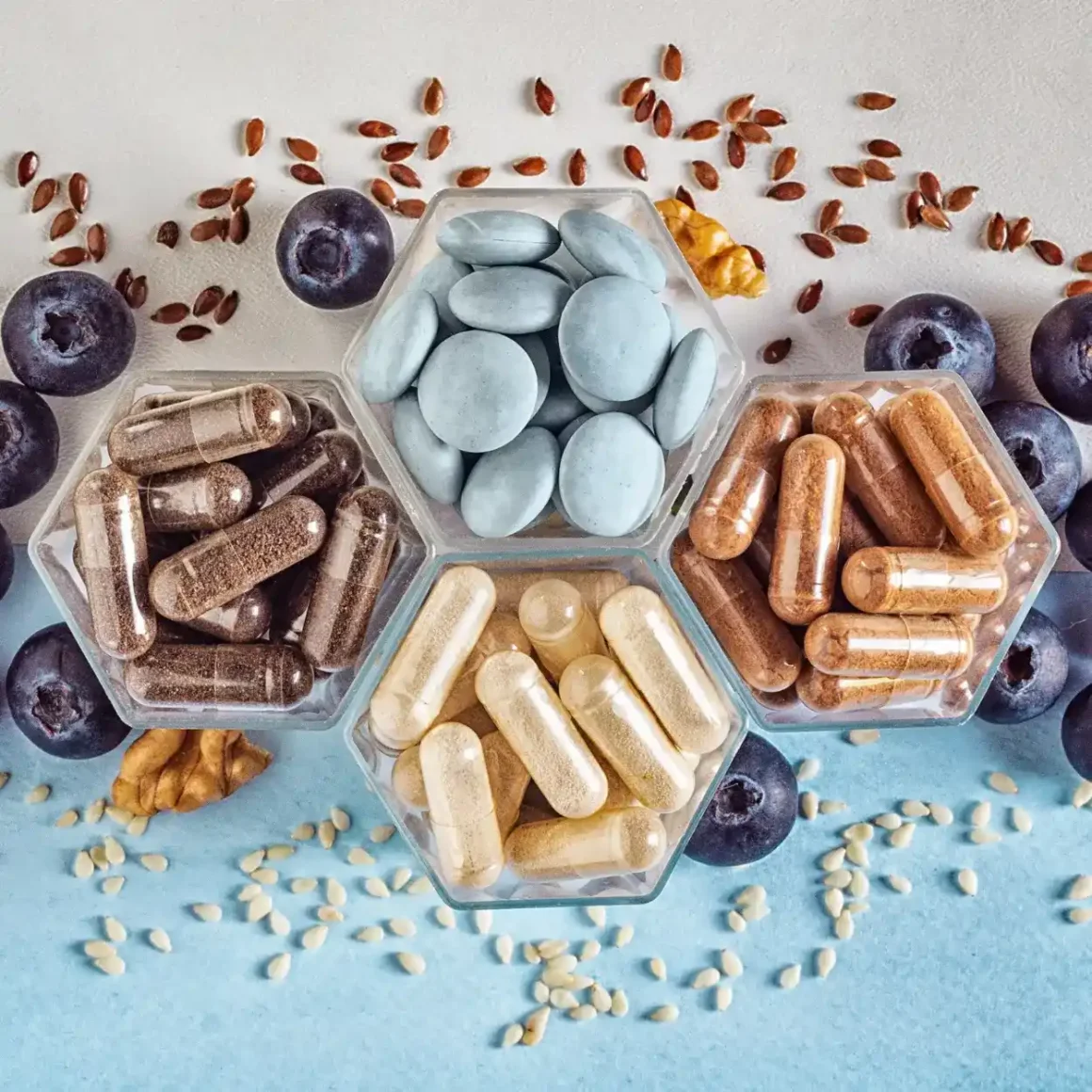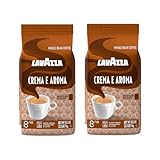In the quest to find the ideal energy boost for exercise, the coffee vs pre workout debate presents a fascinating dilemma. This article delves into the nuances of both options, exploring how each fits into different lifestyles and exercise routines. From the everyday energy needs addressed by coffee to the targeted benefits offered by pre-workout supplements for fitness enthusiasts, we navigate through the advantages, cost-effectiveness, availability, and potential side effects of these popular choices. Balancing the quick jolt of coffee with the sustained energy release from these supplements, this comprehensive analysis aims to provide insights to help you make an informed decision on the best energy source for your exercise regimen.
Don’t want to read? Press play and enjoy the article as an audio version below.
- Introduction & Key Differences
- https://app.mysoundwise.com/tracks/17001423842459863e.mp3
- Coffee’s Natural Energy Kick
- https://app.mysoundwise.com/tracks/17001424163690947e.mp3
- Pre-Workout Supplements: Engineered for Performance
- https://app.mysoundwise.com/tracks/17001424489434126e.mp3
- Coffee vs Pre-Workout: Energy Delivery
- https://app.mysoundwise.com/tracks/17001424812892759e.mp3
- Choosing Your Energy Source: Lifestyle Considerations
- https://app.mysoundwise.com/tracks/17001425256529600e.mp3
- Safety and Side Effects
- https://app.mysoundwise.com/tracks/17001425657359546e.mp3
- Cost and Accessibility
- https://app.mysoundwise.com/tracks/17001426011418896e.mp3
- Conclusion & FAQs
- https://app.mysoundwise.com/tracks/17001426330291147e.mp3
Pre Workout vs Coffee: Key Differences
- Energy Release: Coffee provides a quick energy boost ideal for short-term focus, while pre-workout supplements offer sustained energy, better suited for longer, intense workouts.
- Ingredients and Benefits: Coffee mainly relies on caffeine for alertness. These supplements contain a mix of ingredients like amino acids and creatine for diverse exercise benefits, including muscle endurance and fatigue reduction.
- Cost: Coffee is generally more affordable, especially homemade, whereas pre-workout supplements can be costlier over time, especially premium brands.
- Availability and Convenience: Coffee is widely available and easy to prepare, making it highly convenient. These supplements are found in specialized stores and require preparation but offer portability.
- Side Effects and Tolerance: Excessive coffee can cause sleep issues and jitteriness, with potential caffeine tolerance development. These supplements might lead to increased heart rate and other side effects if overused.
Coffee’s Natural Energy Kick
Coffee, a staple in the diets of many, is not just a beloved morning ritual but also a natural source of energy. Its rich history and widespread popularity make it more than just a beverage; it’s a cultural phenomenon that has found its way into the realm of fitness and athletics. Known for its ability to invigorate and revitalize, coffee has become a go-to for athletes and gym enthusiasts seeking a natural boost before engaging in physical activity.
Caffeine: The Star Ingredient

At the heart of coffee’s energizing properties is caffeine, a potent natural stimulant. This component is what makes coffee a preferred choice for those looking to enhance their physical and mental performance, especially before workouts.
- Energy Enhancement: Caffeine is renowned for its ability to elevate energy levels. A typical 8-ounce cup of coffee contains about 80 to 100 milligrams of caffeine, providing a significant energy boost. (1)
- Improved Mental Focus: Caffeine sharpens mental focus, aiding athletes and gym-goers in maintaining concentration during their exercises.
- Enhanced Cognitive Function: Beyond focus, caffeine also enhances overall cognitive functions, improving reaction times and decision-making skills.
- Fatigue Delay: One of the most valued effects of caffeine is its ability to delay the onset of fatigue, enabling longer and more intense training sessions.
The caffeine in coffee is a versatile component that supports various aspects of physical and mental performance, making it a highly valued natural supplement in sports and exercise.
Coffee’s Health Benefits

Coffee’s benefits extend beyond just the caffeine it contains. It’s a complex beverage with various compounds that contribute to health and wellness.
- Antioxidant Properties: Coffee is rich in antioxidants, which help combat cellular damage and reduce inflammation, especially beneficial post-exercise. (2)
- Supports Muscle Recovery: The antioxidants in coffee also play a role in muscle recovery, aiding in the reduction of muscle soreness after intense workouts.
- Nutritional Value: Coffee includes vital nutrients like vitamin B3, magnesium, and potassium, contributing to overall health and well-being.
- Mental Health Benefits: Regular coffee consumption has been linked to improved mood and mental health, a crucial aspect for athletes in maintaining a positive mindset.
Coffee is not just an energy booster but a health-promoting beverage, offering a range of benefits that support both physical and mental well-being.
Tolerance and Sensitivity to Caffeine

While coffee offers numerous benefits, it’s essential to consider individual tolerance and sensitivity to caffeine.
- Varied Effects on Individuals: People metabolize caffeine differently, leading to varying effects on energy levels and performance.
- Risk of Overconsumption: Overreliance on coffee for energy can lead to excessive caffeine intake, potentially causing jitters, anxiety, and sleep disturbances.
- Building Tolerance: Regular consumption of coffee can lead to the development of tolerance, necessitating higher amounts for the same energizing effect.
- Balancing Consumption: It’s crucial to balance coffee intake to avoid dependency and adverse effects, especially for those using it as a pre workout drink.
Understanding one’s tolerance and sensitivity to caffeine is key to optimizing the benefits of coffee as a natural energy booster, ensuring that it supports rather than hinders athletic performance and overall health.
Pre-Workout Supplements: Engineered for Performance
Pre workout supplements, a product of the evolving fitness industry, have become a staple for athletes and gym enthusiasts. These supplements, born in the 1980s bodybuilding world, are designed to be taken before physical activity to enhance performance, boost energy levels, and improve focus. (3) They come in various forms, including powders, liquids, capsules, and gummies, catering to diverse preferences and lifestyles.
Ingredients in Pre-Workout Supplements

The effectiveness of these supplements lies in their carefully selected ingredients. Each component is chosen for its specific role in enhancing exercise performance and aiding in recovery.
- Caffeine: A common stimulant found in pre workouts, caffeine is known for increasing energy and improving focus.
- Amino Acids: Ingredients like beta-alanine and citrulline play a significant role in muscle endurance and reducing fatigue.
- Creatine Monohydrate: A key ingredient for high-intensity workouts, creatine aids in muscle strength and growth.
- BCAAs: Branched-chain amino acids, including leucine, isoleucine, and valine, are crucial for muscle growth and recovery.
- Vitamins: B vitamins such as niacin and B12 are often included to enhance energy metabolism during workouts.
The combination of these ingredients makes these supplements a powerful tool for athletes, enhancing various aspects of their training and recovery.
The Science Behind Pre-Workout Formulas

Understanding what is pre-workout involves delving into the science behind these supplements. Each ingredient is chosen based on its scientifically proven benefits for exercise performance.
- Muscle Endurance and Growth: As mentioned above, Ingredients like creatine and BCAAs are backed by research to support muscle growth and endurance, allowing for more intense training sessions.
- Energy Metabolism: Caffeine and B vitamins work together to improve the body’s energy use, providing a sustained energy boost.
- Enhanced Blood Flow: Ingredients like L-citrulline are included for their role in increasing blood flow, and delivering more oxygen and nutrients to muscles during exercise.
- Fatigue Reduction: Beta-alanine and other amino acids help in reducing the onset of muscle fatigue, enabling longer workout durations.
The science behind these supplements shows a targeted approach to enhancing athletic performance through various biochemical pathways.
Timing and Dosage Considerations

For optimal benefits, understanding the timing and dosage of these supplements is crucial.
- Ideal Timing: Consuming pre workout supplements approximately 30 to 60 minutes before exercise is recommended for maximum efficacy. (4)
- Dosage: The appropriate dosage can vary based on individual tolerance and the specific blend of ingredients. It’s essential to follow the recommended dosage on the product label.
- Individual Differences: Factors such as body weight, metabolism, and sensitivity to ingredients like caffeine should be considered when determining the right amount.
- Avoiding Overuse: To prevent potential side effects, it’s important not to exceed the recommended dosage and to be mindful of other sources of similar ingredients consumed throughout the day.
Proper timing and dosage are key to harnessing the full potential of these supplements while minimizing the risk of adverse effects.
Coffee vs Pre Workout: Energy Delivery

In the realm of fitness and exercise, the debate between using coffee and pre workout supplements for energy enhancement is ongoing. Both have their unique methods of energy delivery, each with distinct characteristics and effects on the body. Understanding these differences is crucial for athletes and fitness enthusiasts to choose the best option for their needs.
Quick Jolt vs. Sustained Release
The primary distinction between coffee and pre-workout supplements lies in the nature of energy release. Coffee provides a quick jolt of energy, whereas these supplements offer a more sustained release.
Coffee’s Immediate Effect:
- Rapid Absorption: Coffee is quickly absorbed, leading to an almost immediate energy boost.
- Short-term Peak: The energy spike from coffee is significant but tends to peak quickly.
Pre-Workout’s Gradual Energy:
- Steady Release: Pre workout formulas are designed to release energy gradually, providing sustained endurance.
- Long-lasting Effect: The energy from these supplements tends to last longer, supporting extended workout sessions.
While coffee can be ideal for a quick energy boost, these supplements are more suited for activities requiring sustained energy over a longer period.
Crash and Burn vs. Smooth Exit
Another critical aspect to consider is how the body winds down post-energy spikes from these sources.
Coffee’s Crash:
- Abrupt Decline: The rapid energy spike from coffee often leads to a sudden crash as the effects wear off.
- Potential Jitters: Overconsumption of coffee can result in jitteriness and a subsequent energy crash.
Pre-Workout’s Gradual Decline:
- Smooth Transition: The energy from these supplements diminishes more gradually.
- Reduced Crash Effects: The risk of a sudden energy crash is lower with these supplements, offering a smoother transition back to normal energy levels.
For those looking to avoid the sudden energy drop often associated with coffee, these supplements offer a more steady decline in energy levels.
Choosing Your Energy Source: Lifestyle Considerations

In the debate of pre workout vs coffee, the choice of an energy source is not merely about preference but also about how it fits into one’s lifestyle. Whether it’s the daily routine or intense fitness sessions, the decision should align with personal habits, health goals, and convenience.
Coffee for Everyday Energy
Coffee, a staple in many daily routines, is revered not just for its flavor but for the energy boost it provides.
Versatility and Accessibility:
- Widely available, coffee seamlessly integrates into various lifestyles, be it for a morning kickstart or a late-night study session.
- Its preparation ranges from quick and easy instant varieties to more sophisticated brewing methods, catering to diverse tastes and time constraints.
Benefits:
- Coffee is known for improving focus and alertness, making it ideal for work or study.
- Coffee drinking often doubles as a social activity, enhancing its role in daily life.
Coffee’s universal appeal and ease of preparation make it an excellent choice for everyday energy needs, fitting effortlessly into most people’s daily routines.
Pre-Workout for Fitness Enthusiasts
For fitness enthusiasts, these supplements are specifically designed to enhance exercise performance.
Targeted Benefits:
- These supplements work synergistically to deliver a precise and targeted energy boost, enhancing overall performance.
- These supplements are designed to support muscle endurance, helping individuals push their limits and achieve their fitness goals more effectively.
Usage Scenarios:
- Consumed before workouts, these supplements can significantly improve exercise intensity and duration.
- Ideal for those aiming for specific fitness milestones or intense training sessions.
These bodybuilding supplements are a strategic choice for fitness enthusiasts looking for an energy source that aligns with their rigorous exercise regimens and specific performance goals.
Combining Both for Optimal Results
Balancing the use of coffee and pre-workout supplements can lead to optimal energy management throughout the day.
Strategic Usage:
- Coffee in Daily Life: Utilizing coffee for its quick energy and mental alertness during regular daily activities.
- Pre-Workout in Training Sessions: Leveraging these bodybuilding supplements for enhanced performance during workout sessions.
Balanced Approach:
- Complementary Use: Integrating both coffee and pre-workout supplements into one’s routine can cater to different energy requirements throughout the day.
- Mindful Consumption: Being mindful of total caffeine intake and personal tolerance is crucial when combining these two sources.
By strategically using coffee for everyday activities and these supplements for fitness endeavors, one can enjoy the unique benefits of each, leading to a well-balanced and effective energy management strategy.
Safety and Side Effects

When it comes to energizing the body for workouts or daily activities, safety and understanding the potential side effects of both coffee and pre-workout supplements are paramount. While both offer distinct benefits, they also come with their own set of risks, especially when consumed in excess or without a proper understanding of one’s body.
Potential Side Effects of Excessive Coffee Consumption
Coffee, while beneficial in moderate amounts, can have adverse effects when consumed excessively.
- Sleep Disturbances: Excessive coffee consumption can lead to disturbed sleep patterns, causing restlessness and insomnia.
- Anxiety and Jitteriness: High doses of caffeine can induce feelings of anxiety, agitation, and a jittery sensation.
- Gastrointestinal Issues: Coffee acts as a diuretic, leading to frequent urination and potential digestive discomfort.
- Headaches and Withdrawal: Regular heavy coffee drinkers may experience headaches and withdrawal symptoms if they suddenly reduce their caffeine intake.
While coffee is a popular and effective energy booster, it is essential to consume it in moderation to avoid these potential side effects.
Pre-Workout Supplements Risks
These bodybuilding supplements offer a range of benefits but also carry risks, particularly when misused.
- Cardiovascular Effects: Some individuals may be more sensitive to the stimulants in these supplements, leading to an increased risk of elevated blood pressure, palpitations, and cardiovascular stress.
- Dehydration: Some of these supplements may contain diuretics or ingredients that can contribute to increased fluid loss, potentially leading to dehydration if not properly hydrated.
- Digestive Distress: Certain ingredients in these supplements, such as beta-alanine, can cause tingling sensations (paresthesia) and gastrointestinal discomfort in some individuals.
- Dependency and Tolerance: Regular use of these supplements with high levels of stimulants like caffeine can lead to tolerance, requiring higher doses to achieve the same effect. This can lead to dependency and withdrawal symptoms when not using the supplement.
In summary, pre-workout supplements can provide benefits for some individuals, but they also come with potential risks, especially when used improperly or excessively.
Individual Variations in Tolerance
The effects of both coffee and pre-workout supplements can vary significantly from person to person.
- Caffeine Sensitivity: Individual tolerance to caffeine can vary greatly, affecting how one reacts to both coffee and these supplements.
- Customized Dosage: It’s important to adjust the dosage based on personal tolerance and workout intensity.
- Monitoring Body’s Reaction: Paying attention to how your body reacts to these stimulants can help avoid adverse effects.
- Seeking Medical Advice: Consulting with a healthcare provider is advisable, especially for those with underlying health conditions or those taking other medications.
Understanding and respecting individual differences in tolerance is key to safely utilizing coffee and pre-workout supplements as energy sources.
Cost and Accessibility
In the pursuit of an ideal energy boost for workouts or daily activities, the cost and accessibility of the chosen supplement play a crucial role. When deciding between coffee and pre-workout supplements, understanding their financial impact and ease of access is essential for making a sustainable and practical choice that aligns with individual lifestyles and budgets.
Analyzing the Cost-Effectiveness of Coffee vs Pre-Workout

When considering the financial aspect of coffee versus pre-workout supplements, it’s important to look at various factors such as affordability, initial investment, and the range of costs associated with each option.
- Affordability and Initial Investment: Generally, coffee is more affordable, particularly when made at home, whereas pre-workout supplements often require a higher initial investment compared to a standard jar of coffee.
- Price Range vs. Long-Term Costs: Coffee’s cost can vary from budget-friendly instant varieties to pricier specialty brews. On the other hand, regular purchases of pre-workout supplements, especially premium brands, can accumulate significant costs over time.
Coffee tends to be more cost-effective for daily use, but pre-workout supplements might be worth the investment for those focusing on specific fitness goals and seeking specialized benefits.
Availability and Convenience Factors

The ease of obtaining and using coffee compared to pre-workout supplements is another crucial aspect to consider, encompassing availability, preparation convenience, and retail options.
- Widespread Availability vs. Specialized Retail: Coffee boasts broad availability in grocery stores, cafes, and vending machines. Pre-workout supplements, however, are typically found in specialized locations like gyms, health stores, or online.
- Ease of Preparation vs. Preparation and Portability: Coffee is easily prepared at home or in the office, integrating seamlessly into daily routines. Pre-workout supplements require mixing with water, but portable forms like capsules offer convenience.
Coffee scores high on availability and convenience, making it a popular choice, while pre-workout supplements provide specific benefits, albeit with slightly less accessibility.
DIY Pre-Workout Alternatives vs. Store-Bought Coffee

For individuals looking to strike a balance between cost and effectiveness, considering DIY pre-workout options versus buying coffee ready-made presents a range of considerations.
- Customization and Consistency: DIY pre-workout allows for the personalization of ingredients to fit specific needs, whereas store-bought coffee offers consistent taste and caffeine content.
- Cost Savings vs. Convenience: Creating your pre-workout mix can be more economical in the long run compared to store-bought supplements. In contrast, store-bought coffee provides a quick, hassle-free energy boost with no preparation required.
DIY pre-workout alternatives offer a personalized and potentially more cost-effective approach, while store-bought coffee remains a reliable, convenient choice for many due to its consistency and ease of access.
Conclusion
In conclusion, the choice between coffee and pre-workout supplements as an energy source for exercise is a multifaceted decision that hinges on individual preferences, lifestyle, and fitness goals. Through our exploration of the coffee vs pre workout debate, we’ve seen that coffee offers ease, affordability, and a quick energy boost, making it a versatile choice for everyday activities. On the other hand, pre-workout supplements provide targeted benefits, enhancing workout performance with sustained energy and supporting specific fitness objectives. We’ve also considered the cost, accessibility, and potential side effects of each, highlighting the importance of understanding personal tolerance and health considerations.
Ultimately, whether choosing the natural simplicity of coffee or the specialized formulation of these bodybuilding supplements, the best decision is one that aligns with your personal health needs, fitness goals, and lifestyle preferences. By carefully weighing these factors, you can effectively harness the right energy source to power your exercise journey.
FAQ
What are the health benefits of consuming coffee regularly?
Regular coffee consumption can enhance mental alertness, improve focus, and offer antioxidant benefits that support overall health.
How do pre-workout supplements affect workout performance?
Pre-workout supplements enhance workout performance by providing sustained energy, improving muscle endurance, and reducing fatigue during exercise.
Are there any potential side effects of drinking too much coffee?
Yes, drinking too much coffee can lead to side effects such as insomnia, jitteriness, anxiety, and potential digestive discomfort.
Can I combine coffee and pre-workout for increased energy?
Combining coffee and pre-workout can increase energy, but it should be done cautiously to avoid excessive caffeine intake and potential side effects.


























